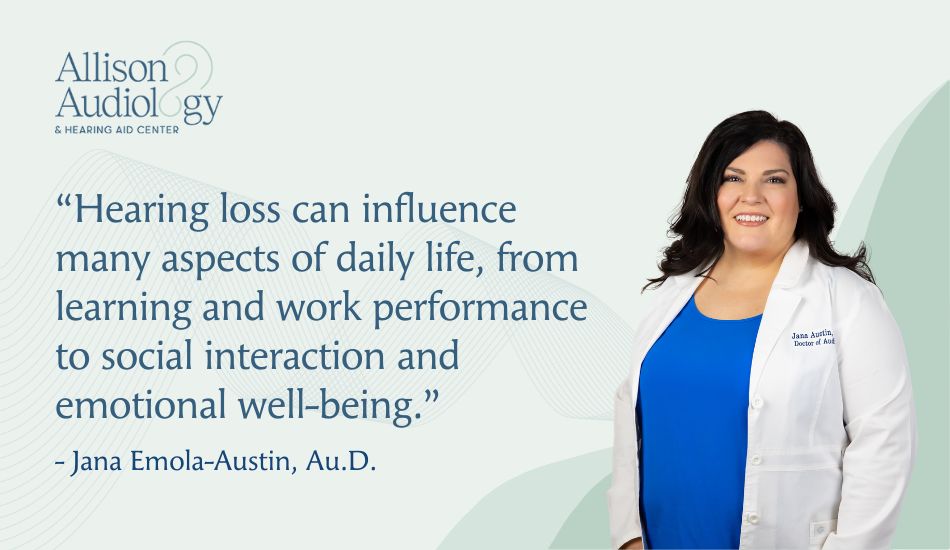
Waterproof Hearing Aids: Myth or Reality? What to Do If Your Hearing Aids Get Wet
Water-resistant hearing aids need care if wet. Learn how to protect and dry your hearing aids with tips from Allison Audiology.
Waterproof Hearing Aids: Myth or Reality? What to Do If Your Hearing Aids Get Wet
Nov 21, 2024
Waterproof hearing aids? That’s like the next best thing to sliced bread. Though I don’t think sliced bread is as big a deal as it used to be, the idea of being able to wear your hearing aids in the shower, the pool, or the hot tub seems pretty promising, right? Don’t get too excited just yet. Waterproof hearing aids may not live up to their billing. Just like all hearing aids, if they get wet, there could be significant damage to the high-tech components inside your digital hearing aids. I want to dedicate this post to dispelling some of the myths of waterproof hearing aids as well as discussing what to do if your hearing aids get wet.
Waterproof vs. Water-Resistant
The words waterproof and water-resistant often get used interchangeably. In reality, they are not the same thing. For something to be considered waterproof, it must be rated to withstand continuous submersion in water. According to the ratings standards from Ingress Protection marking (IP), Japanese Industrial Standard (JIS), and Atmospheres (ATM), for a product to be rated waterproof, manufacturers must prove that the device can be submerged in one meter (three feet) of water for up to 30 minutes and still function normally. Water-resistant is a different story. A device, like a modern hearing aid, can be rated as being water-resistant if it can withstand coming into contact with water—without being submerged in it—for the specified time and continue to function. Some styles of advanced technology hearing aids are water-resistant, which means they will keep out moisture—for the most part—but the aids will probably not stand up to continuous submersion in water without becoming damaged. So, here is the question: Can hearing aids get wet? Water-resistant hearing aids were designed to prevent damage to your hearing aids from casual contact with water—like when it rains, if you live in a humid environment, or if water gets splashed on them—not to protect them if they become submerged in water. To be safe, it’s better to remove your hearing aids, even if they are water-resistant, when you shower, go swimming, or use a hot tub, sauna, or steam bath.
What Do I Do If My Water-Resistant Hearing Aid Gets Wet?
Have you ever dropped your cell phone in the toilet or the bathtub? If you have, then you may already know what you’re supposed to do, because the same basic steps are used to deal with wet hearing aids. Your first step is fairly obvious and almost automatic. Use a towel or a dry cloth to wipe away the moisture of your hearing aid(s). If the moisture has not penetrated inside the device, this step may prevent it from getting there. If your hearing aids use batteries, you’re already used to opening the battery door to change the batteries. By opening the battery door, you allow air to circulate freely through the device, which will help dry it out. Silver-zinc type rechargeable hearing aids also have a battery door that can be opened to allow for air circulation, but do not attempt to open up your hearing aids if they are lithium-ion type rechargeable hearing aids. While opening the battery door may do the trick, you may need something more thorough. If you don’t already have one, I recommend that you get a hearing aid dehumidifier to store your hearing aids in when they aren’t in your ears. Those who live in a humid climate should already have invested in a dehumidifier for overnight storage after cleaning. Some types of dehumidifiers are simple containers that use desiccants (a small packet of crystals), while others use air circulation for drying and may come with a UV light for sanitizing.
Professional Hearing Aid Support and Troubleshooting
Can hearing aids get damaged if they get wet? Yes, they can, even if they are water-resistant. Your best bet is to prevent that from happening by doing your best to keep them away from water, be sure to wipe them down and allow them to dry as a part of your daily routine, and invest in a dehumidifier if you haven’t already done so. The team and I at Allison Audiology provide ongoing support to hearing aid wearers, like troubleshooting tips for hearing aids that got wet, in Houston and nearby communities. Contact us online or call us at (713) 827-1767 if you need help with your hearing challenges or hearing aids.
https://allisonaudiology.com/wp-content/uploads/2024/11/Contact-Us.jpg













